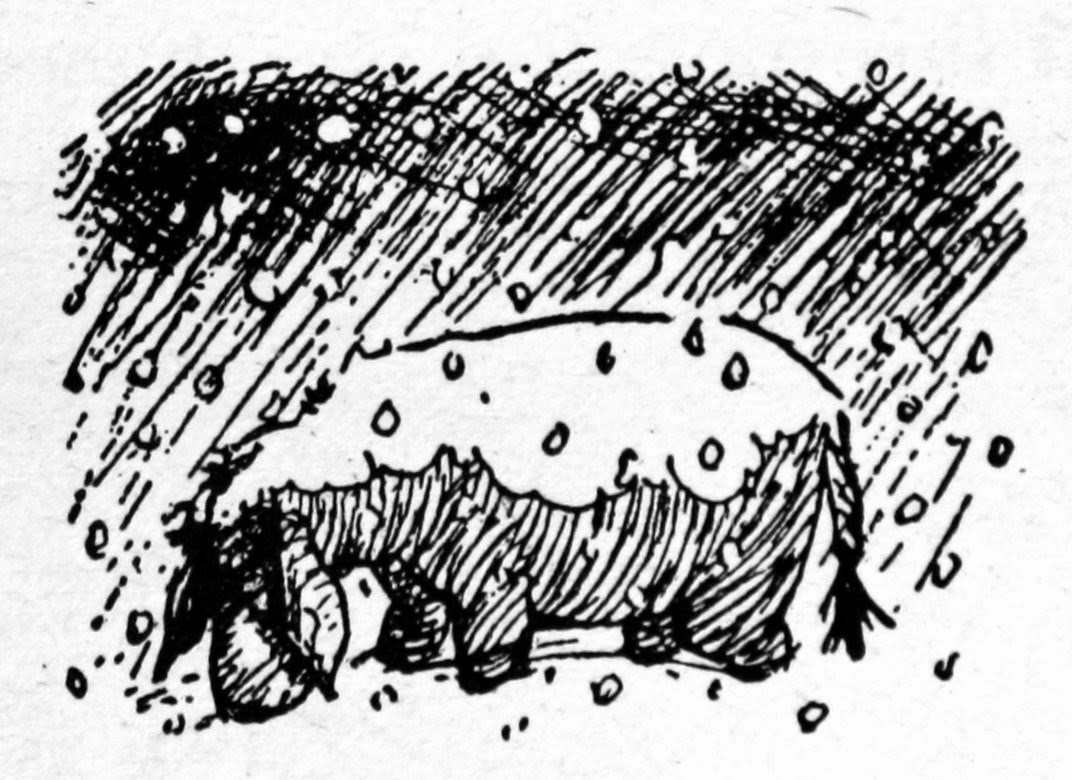Whether he's hearing a scream, or screaming, there's definitely something to scream about
I feel bad about my own worrying. I mean, what do I have to worry about compared to most? Not only do I not have Ebola, but I'm not involved with the Band Aid umpteenth revival.
This week, in creative writing class, we had to write about something which interested us (no prizes for guessing what I chose), and then write a piece about it, using facts we found through research. Below is my offering. I think it's more Comment is Free than me, in terms of style, but I do believe that worrying too much is dangerous. Even if I am a first class worrier. And I'm going to try hard not to worry about that.
"It's snowing still," said Eeyore gloomily.
"So it is."
"And freezing."
"Is it?"
"Yes," said Eeyore. "However," he said, brightening up a little, "we haven't had an earthquake lately."
Worries are something few of us can say we’ve never experienced from time to time. In the past few years, worries have come easily to us Brits more than ever before as uncertainty abounds: the economic situation is insecure; we have – at best – a shaky government.
At work, redundancies have been common and the future seems less sure than ever, which leads to money worries with little or no job security or secure future for ourselves and our families.
Those retired from work are, for the first time in many cases, seeing their children in a worse economic situation than they were in themselves as young adults. Things are tough whether you’re eighteen or eighty, but no less so than for the working population, who are juggling national and personal challenges with one very full pair of hands. Knowing this, it can’t be a surprise that this might have affected how many worries the average person experiences, and only a step farther to understand that ongoing worries might lead to illness and absence from work.
In the UK, 1 in 4 people suffer from mental illnesses, myself one of those “ones in four”. Recently, the World Health Organisation has reported that four of the ten leading causes of disability in the US and other developed countries are mental disorders, and estimate that, by 2020, major depressive illness will be the leading cause of disability in the world for women and children[i].
Before this year, I had never taken time off work related to depression, despite having suffered from it at different points of my life during the last twenty or so years; when I did take time off work, I sometimes related my illness to other causes or sometimes I worked through my illness despite the debilitating nature of the condition on my sense of well-being. In this I exemplify another statistic: that university-educated professionals are less likely to take time off work when depressed, and, if they do, are reluctant to tell their employer the reason why[ii].
Talking to my friends and family members, it is amazing that the statistic is only one in four. Almost everyone I have spoken to has experienced some period of their life where worry has turned to stress or worse. But I never knew about their illnesses / worries before; and they never knew about mine. We were all keeping one big secret from one another.
Employers are required to support any employee returning to work after a period of illness, and to make what are called ‘reasonable adjustments’ during this time. In the light of our secrecy this is hard to fathom. Personally I just don’t know what a reasonable adjustment should be – maybe don’t mark me down as a failure at my job if my eyes tear up in the office one day? Treat me as totally normal is probably the best thing I can think of.
These reasonable adjustments, though, and more direct action to help workers suffering with some kind of mental illness, are imperative for employers to take action on. In Europe, depression is said to cost workplaces £77 billion annually, with the greatest economic loss coming through absenteeism and lost productivity, according to a recent report by the London School of Economics and Political Science (LSE), and King’s College London[iii].
Many employers have publicly taken steps to pledge their commitment to addressing mental health, through signing the Time to Change pledge to end the mental health stigma and by founding the City of London Mental Health Alliance. This is a start – and only a start – to helping employees know that the companies for whom they work want to support them (and this makes sense. It's not as if doctors have an instant cure; partly why there's so much mystery around mental health).
Further, employers are starting to focus on mental health as a priority topic among the other ‘inclusion and diversity’ focuses, and many like my own employer, have set targets to address mental health awareness and support within their own organisations.
None of this stops me worrying – well – a little, but no more, nor enables me to ditch the medication and the therapy for depression in one fell swoop. However, knowing the statistics tells me my employer has as much to be worried about as I do. It must act to resolve its own, similar worries about an insecure future and potential financial loss. It makes economic sense to do so. Organisations and their employees have to work together to keep going amid the uncertainties that we all continue to face. It remains to be seen which organisations (and employees) will embrace the challenge and come through it stronger.
[i] http://www.nami.org/template.cfm?section=about_mental_illness National Alliance for Mental illness












